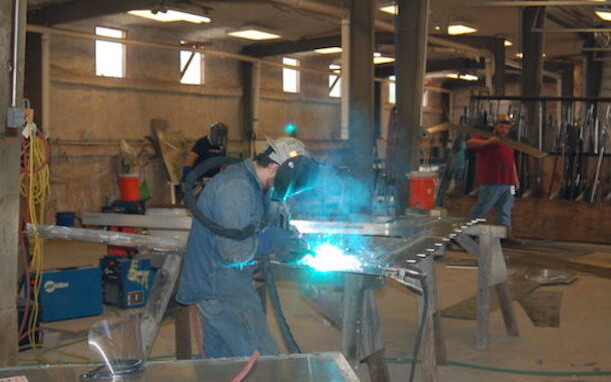An accident near miss, also referred to as a close call, or near accident, is an event that happens in a shipyard or on board that has the potential to cause injury or damage, but luckily doesn't.
Imagine someone almost getting hit by a swinging crane hook — that would be a near miss. By recognizing and recording these close calls, shipyards and vessel operators can learn from them and prevent future accidents.
The best in the business track accident near misses for a very important reason: Prevention. Near misses are warnings, pure and simple. By tracking these close calls, you can identify weaknesses in safety protocols before an accident happens. These brushes with disaster reveal root causes. Was it a faulty procedure? A communication breakdown? Uneven training?
By understanding the why, you can take corrective actions to prevent similar situations from happening again. Talking openly about near misses is also a feature of a proactive safety culture. This can lead to a more vigilant workforce and a safer work environment overall.
Employers in shipyards and on vessels (and any workplace, really) can encourage near miss reporting through a two-pronged approach: Fostering a culture of safety and making the reporting process itself convenient and positive. This takes leadership commitment to prioritizing safety and being visibly involved in safety initiatives, as well as a willingness to address concerns.
Making the most of near misses also requires a no-blame environment. Employees should feel comfortable reporting near misses without fear of punishment or being seen as incompetent. Emphasize that near misses are valuable information for improvement, not opportunities to assign blame. Recognize and appreciate employees who report near misses. This can be done through public praise, rewards programs (avoiding rewards based on quantity of reports), or simply by expressing gratitude. Encourage open communication about safety by regularly discussing safety procedures, hazards and near misses in safety meetings or training sessions.
Provide an easy-to-use reporting system, whether it's paper forms, a mobile app, or an online portal to allow for ease of reporting and different styles of communication. Make sure it's accessible both during and outside work hours for better recall of events. Offer options for anonymous reporting if employees prefer it. This can help those who are still hesitant to come forward as you build this culture. Minimize the amount of information required to report a near miss while still capturing the necessary details. Finally, be sure to communicate the results of near-miss investigations and the corrective actions taken and display gratitude for the heads up. This shows employees that their reports are valued and acted upon, encouraging future participation.
By combining these approaches, employers can create a safe space for employees to report near misses, ultimately leading to a safer work environment for everyone in the shipyard or on board. In essence, tracking near misses is like catching a fire before it engulfs the whole building. It's a proactive approach to safety that can save lives and prevent costly accidents.




